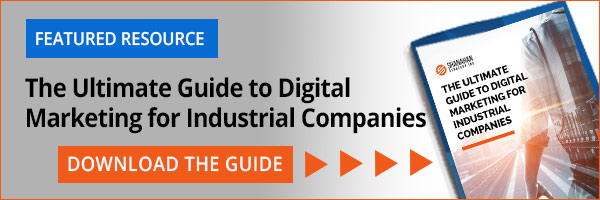Nearly 60% of the world’s population is online. Your business has the potential to reach that market through your company’s website.
Your website is the first impression most people receive about your business. However, you don’t have much time to make that impression since an opinion forms less than a second after visiting a new site. About 94% of that opinion is related to your site’s design.
While your content attracts visitors to your site, high-quality design and development will keep people browsing and increase your chances of a sale.
Here is a breakdown of a budget for web design and development for large businesses, including four ways to determine how much your company should budget to increase your return on investment (ROI).
Key Takeaways:
- Your company’s website is most people’s first impression of your brand
- Choose a website goal proportional to your company’s size
- Hire a reliable design and content team to receive a high ROI
Determine Your Company’s Web Needs
Your website’s purpose determines the cost. When budgeting for web development and design, you need to determine what you want your website to accomplish.
Here are some of the most common goals of business websites:
- Business branding and contact information
- Selling services or goods
- Offering product support and information
- Providing educational information
- Customer support
- Listing contact information
Each of these goals has a drastically different cost. For example, an informational website designed to point people to a physical store would require minimal design and maintenance. However, if your manufacturing business operated solely online, you would require more plugins and eCommerce features to allow customers to search, shop, and review products from the website.
Often a business has multiple goals. For example, your business might want a website that brands the company, sells goods, and provides information through a business blog. The more features and pages you add to your website, the higher your budget will be.
Choose a Budget Based on Your Company’s Size
The website your company wants might be different from what your company can afford. Website costs vary drastically from thousands of dollars to tens of thousands of dollars.
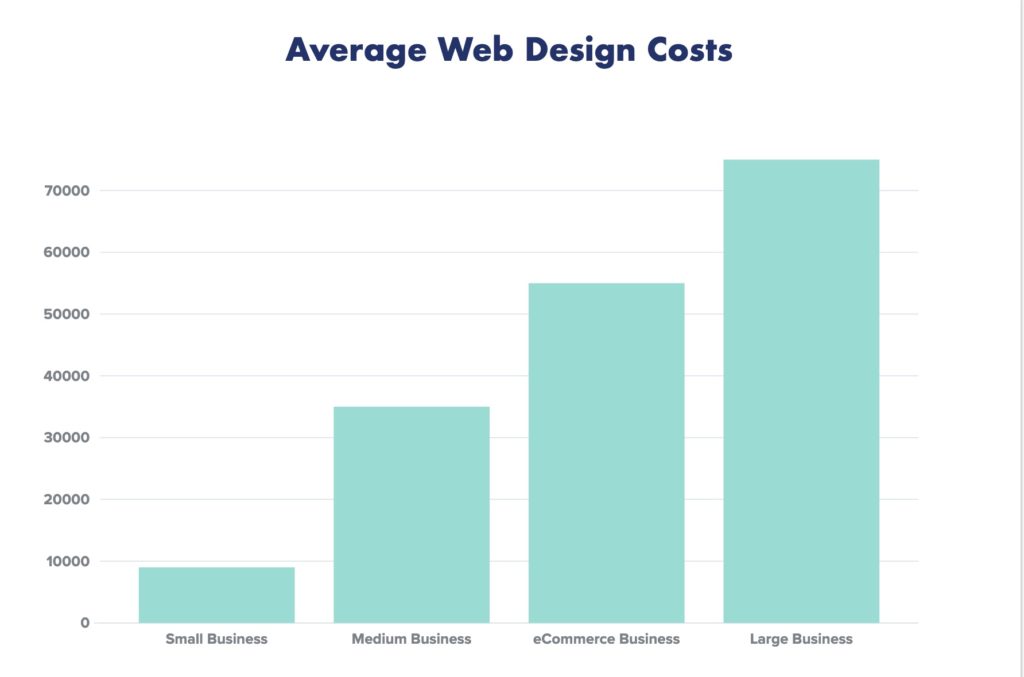
As a large manufacturing business, expect to pay on the higher end of the scale – with a total design cost of $75,000 or more. However, some large businesses have also spent closer to just $40,000 to set up their website.
The more you invest in your website, the greater ROI you will likely receive because it will be more appealing to visitors, run smoother, and rank higher in Google.
Your budget will include the initial costs and upkeep costs after the design is complete. Upkeep costs include:
- Replacing images to look fresh
- Creating new content
- Updating and recycling old content
- Analyzing website performance
- Renewing and monitoring website security
- And more
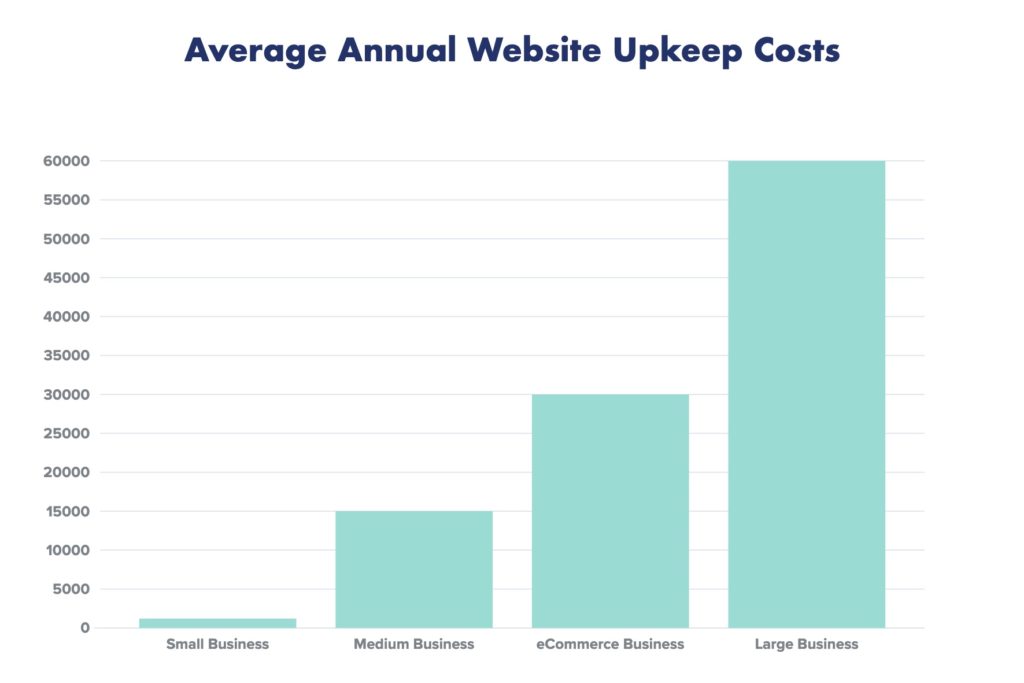
Choose the Right Web Platform
Now you can move on to finding the right platform for making that vision come to life.
Here are a few upfront costs to add to any web development budget.
Website Domain
Your website’s domain is the name of your website. It is what will appear in your URL after the “www.” of the address.
The starting cost of domains is $12. However, most domains can cost hundreds or even thousands of dollars. This is especially true if you are buying a high-demand domain. One of the most expensive domain names, insurance.com, costs $35.6 million because of being in such high demand.
When you purchase your domain, consider purchasing other domains related to your business brand to capture more of the online market and direct them back to your main website.
For example, both Amazon.com and Amazon.org are directed back to Amazon’s main website. This avoids scammers and potential competitors from using your business name to boost their own sales.
Website Hosting
Your website’s hosting is the service that makes your website visible on the web. While entry-level websites use hosts like Bluehost, HostGator, and GoDaddy – larger businesses need more support, speed, and security.
The best hosting services for large manufacturing businesses are:
- WPEngine
- Amazon Web Hosting
- Google Cloud
- Inmotion
A powerful and supportive website hosting service for smalll to large manufacturing businesses will start at $25 a month and easily cost over $100 a month. For example, here are a few sample rates from WPEngine managed hosting for WordPress sites.
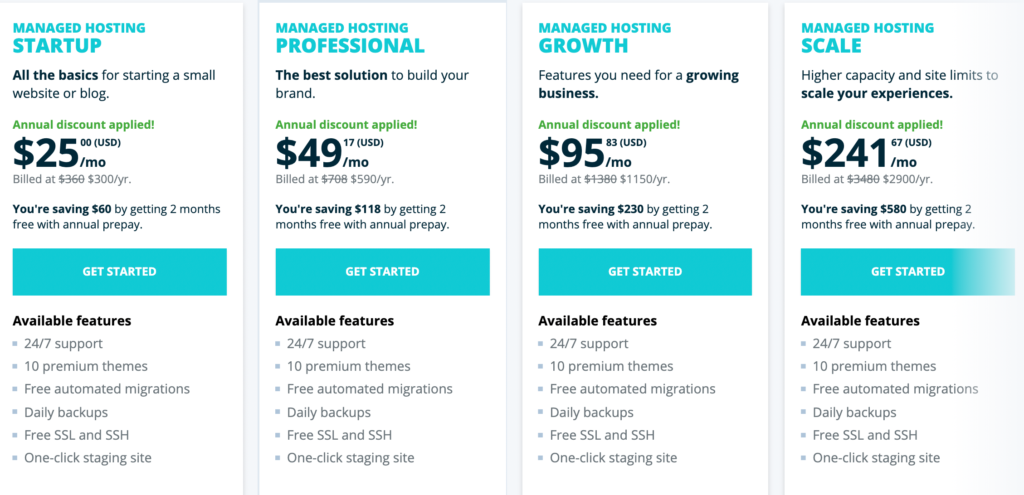
Security
Since your company will be interacting with customers and sensitive information like payments and emails, add extra security to your site. A high-quality domain hosting service will include basic security features like SSL and SSH in their monthly costs.
However, you will also be paying for additional website security add-ons to encrypt and secure contact information and payment information, as well as spam and ad blockers.
Website CMS
Your content management system (CMS) is the platform used to build and manage your website. While smaller businesses may use a system with website templates, a CMS platform requires creating a website from the ground up using coding.
When you invest in CMS, you give your website builder the ability to customize your website to meet your business’s goals. Some of the best CMS platforms for large businesses are:
- WordPress
- Joomla
- Drupal
- Sitecore
- Hubspot CMS Hub
A large business CMS will cost $300 a month and upwards. It includes all you need to build a business website and manage posts, content, products, and multiple users.
Add-Ons and Plugins
Add-ons and plugins are features, software, and design aspects added to a website. Add-ons and plugins give your website the ability to interact with customers, make sales, track website activity, and more.
Some plugins are a one-time fee, while others require a monthly subscription. Depending on your website’s function, these costs are part of your monthly maintenance costs and can range from a couple hundred dollars to thousands of dollars.
Here are some examples of common add-ons and plugins:
- HubSpot
- WooCommerce
- Yoast SEO
- Jetpack
- Akismet Spam Protection
Find a Reliable Design Team
A small business can expect to budget a one-time cost between $15,000-$30,000 for their website design. However, the average cost of website design for larger companies is well over $70,000.
A good design team will work alongside your business to create a custom website that focuses on your company’s goals.
For example, since you are a manufacturing business, your focus may be your eCommerce store. A design team will create a website that places your store at the front of your website. They will also create a navigation bar that leads customers through your site in a way that results in the highest ROI.
In addition to building the website, you’ll hire a graphic designer to create custom logos, pictures, and designs to capture your readers’ attention and lead their eyes to the most important part of your website.
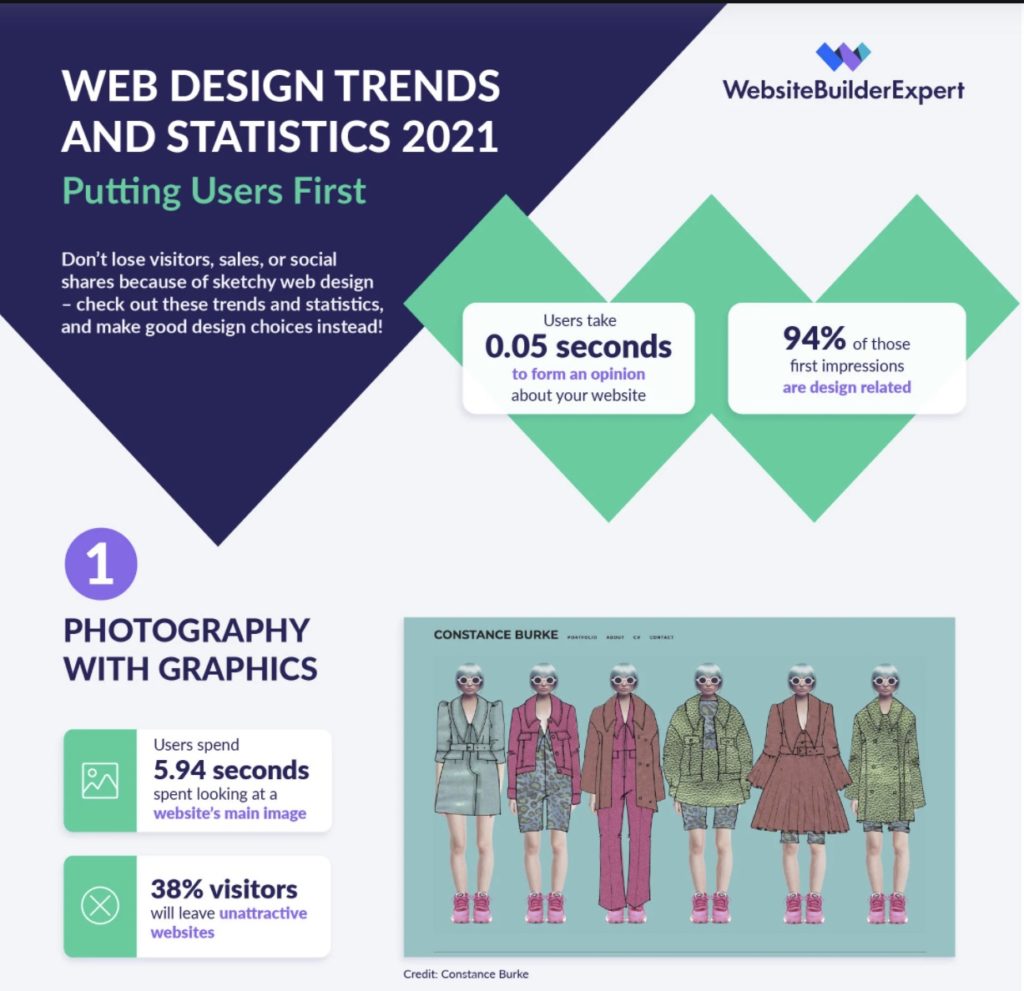
Hire a Strong SEO Company
Your content is what attracts visitors to your website. If you want your website to rank high in searches, hire an SEO agency to write the content on your pages, blog posts, and product descriptions.
Most SEO agencies will charge for word count, content type, and SEO features. Expect to pay at least $3,000-$10,000 to create all your initial website’s content. You should budget a monthly upkeep cost for content and adding new posts, so your website stays relevant.
Budget Your Website Design and Development
Contact Shanahan Strategy today to start creating content and a strong marketing strategy for your manufacturing business.

